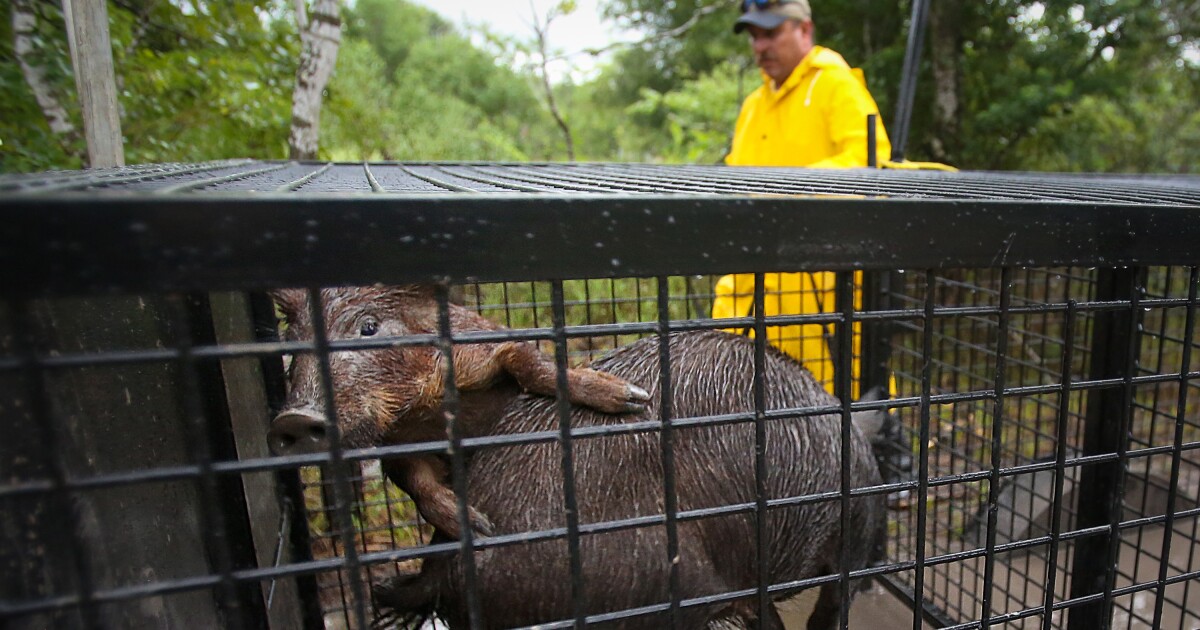Hello 👋
Welcome back to another edition of Weekend Rounds!
Well, the big tournament has started. For legal reasons, we can’t say which one it is but that’s OK because it’s not the most important bracket-style tournament going on.
That’s right - we’re talking about the 10th Annual March Mammal Madness from Arizona State University that asks the question “Who Would Win?” when two animals encounter each other in the wild - with winners being determined by a simulated game based on actual research. Although the whole thing is just for fun, the tournament is set up to be a learning resource with educator and player guides from elementary school through college. We’re big fans of this creative way to bring animal and biology education to life. Plus, anything with the tagline “If you're learning, you're winning!” is right up our alley.
Here’s what else we’re covering:
🌕 The research opportunity during the solar eclipse
🐯 How wild animals responded during COVID lockdowns
🟪 Vet Connections 2
🏃♀️The Barkley Marathons
🚀 Quick hits
🌕
Solar Eclipse of the Heart
On April 8, as a complete solar eclipse passes over North America - from Mexico, across the continental United States, and over eastern Canada - researchers are preparing to make the most of it.
Studying animals during eclipses is a relatively recent strategy, but we already have some compelling research papers analyzing some of the odd behaviors that animals display. Many animals exhibit understandable behaviors such as mistakenly thinking it is night, huddling around their offspring, or acting as if a storm is approaching. But others have left researchers puzzled. During an eclipse in 2017, Galapagos tortoises at a South Carolina zoo all immediately started breeding, and the cause is still unknown.
It is these types of unusual behaviors and more that researchers will be looking to record to help understand the cosmic influence on the natural world. But the stakes are high as the eclipse will only last at maximum 4 minutes and 28 seconds and the exact environment will never be repeated. Research teams are ready at zoos along the eclipse path in Texas, Arkansas, Indiana, Ohio, and Ontario, while other research projects such as Eclipse Soundscapes is seeking data from everyone to compare the 2023 solar eclipse to the 2024 total eclipse.
🐯
Wildlife Responses to COVID Lockdowns
In addition to the solar eclipse research, similar work has been under way investigating the varied wildlife reactions to the reduced human presence during COVID lockdowns. Camera traps in British Columbia's parks showed increased mountain lion activity and decreased deer sightings when humans were absent. Contradictory findings emerged when restrictions eased; for example, deer activity increased in developed areas, possibly due to acclimatization and acting as a "human shield" against carnivores.
A global collaboration involving data from 102 sites across 21 countries revealed two main patterns in animal responses to human activity. Carnivores were less active around humans, while herbivores and omnivores, showed increased activity or became more nocturnal in developed areas. The study highlights the complex dynamics of wildlife adaptation to human presence and the importance of coexistence strategies in shared habitats.
Read more on Scientific American.
🟪
Veterinary Connections #2
Thank you to everyone who participated in Veterinary Connections last week. We’re back by popular demand with a brand new puzzle!
Connections is a game popularized by The New York Times. Veterinary Connections uses a similar format solely for the purposes of education. Play todays New York Times Connections here.
🏃♀
The Barkley Marathons
Jasmin Paris, a veterinarian and accomplished ultramarathoner, is the first woman to complete the Barkley Marathons.
For those not in the know, the Barkley Marathons is a grueling event in the mountains of Tennessee. The race is different every year, and covers 100 miles in a maximum of 60 hours. Whereas at traditional marathons, runners try to set time records, this is one that people just try to finish.
Since 1989, only 20 people have completed the event, and the unique marathon is the subject of a highly entertaining Netflix documentary. Some of the unique traditions of the event include the race starting when its founder, Lazarus Lake Cantrell, lights a cigarette, participants proving their completion of a lap by collecting pages from 9-14 books, and a registration fee of just $1.60.
Check out the documentary if you want to see what this veterinarian is capable of.
Congratulations Jasmin. We’re blown away by your accomplishments. If you read this your All Access Pass on Obi, with access to 31+ hours of CE, is on us. Just drop us a line. 😊
🚀
Quick Hits
Here are some of the other stories that caught our eye and we're following this week from around the veterinary world and animal kingdom:








